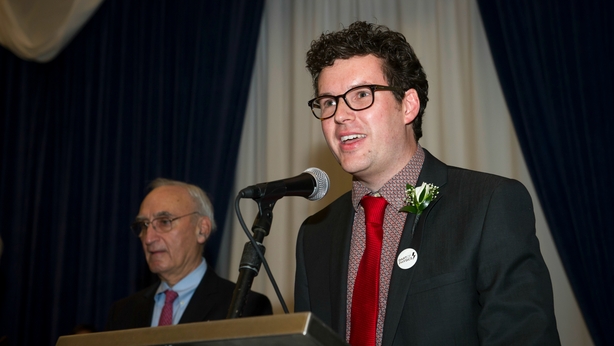If you want a really powerful marker differentiating the generations, and black-and-white differentiation, so to speak, what about the idea of comparing your learning experience in a primary school classroom in one question? Are you a blackboard person or a whiteboard person?
Learning through screens has become the norm over the last few decades, not only through interactive classroom whiteboards but through the myriad of devices in use in everyday life: smartphones, tablets and laptops.
And yet, for all their value, for all their ability to plug us into virtually the entirety of human knowledge available on the web, the learning experience remains far more efficient through the use of good old-fashioned paper books.

And, according to Dr. Shane Bergin, speaking to Keelin Shanley on the Today programme, the earlier that learning starts, the better.
“The idea of being read to is a very human experience and it’s really profound the effect that can have on us. It’s a shared experience that you have with a grown-up when they are bringing you into the world of literature, the world of books.”
Dr. Shane Bergin is a physicist and lecturer in the School of Education in UCD and is a strong advocate of reading to children. He can name the books his parents read to him as a child and he is adamant that, from an educational point of view, the experience is extremely profound.
“When you are reading a physical book, the child begins to imagine. This is absolutely crucial because therefore they construct a view of the world around them. If they are doing it in a safe environment with mom and dad, they get to have conversations about that content. They test whether their own perceptions of that issue are correct or not. They play out scenarios, as a result of reading with mom and dad and they test them. That sense of construction is extremely important in education.”
For younger children, the fact that so many of their senses are engaged while operating electronic devices can actually be a downside. Having your hands and eyes freed up while somebody is reading to you allows the mind greater capacity to engage in imagination.
It was a pleasure to talk to @KeelinShanley on @RTERadio1 about reading science books to young people! https://t.co/zL1WTQNQyo
— Shane Bergin (@shanedbergin) October 27, 2016
And, although many parents struggle to prise young eyes away from those smartphones and tablets, the irony is that, when it comes to reading and digesting written material, the same young people still prefer traditional paper books. Not only that, but research suggests that “digital natives”, as Shane calls them, actually learn better engaging with traditional books.
“The book is a more rarefied experience compared to the tablet. That, for a young listener, could quickly become a Peppa Pig cartoon. It might have an advertisement on the side. The way that you read on iPads is quite different to the book.”
On top of this, children have a greater sense of ownership over a book, and even if they doodle on it, according to Shane, that is a sign of the intimacy of that ownership.
Dr. Shane Bergin has been involved with the launch of The Science Apprentice, a series of five vibrant books in association with UCD and Science Foundation Ireland, designed to stimulate children’s interest in science. The Science Apprentice books are free to collect with the Irish Independent in Tesco stores every Saturday until November 26th.


